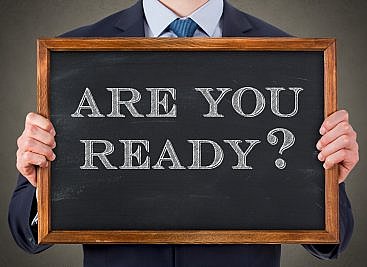Glassdoor surveyed several hundred hiring decision makers (recruiters, hiring managers, HR professionals etc.) across the US and UK to find out what they thought were the most important characteristics of a successful job candidate. This, coupled with results of an earlier larger survey of over 2000 hiring managers, gives valuable insight into decision making criteria. Some of the findings are not surprising but clearly these decision makers are still meeting candidates who make some pretty basic mistakes.
Based on this research and our extensive first-hand experience, we’ve put together some essential interview tips.
How to impress and what not to do at interview:
1. First impressions count
It’s a cliché but unfortunately it’s also true: 33% said they claimed to know whether they were going to hire someone in the first 90 seconds.
- 70% of employers don’t want someone overly fashionable or ‘trendy’. In conservative professions or client-facing roles that figure will be even higher. An occasional faux pas even at senior levels could be unconventional or “statement” hair or clothing. So if you do have a slightly quirky style, perhaps tone it down a little or think about whether this is something you want to compromise
- The most important impact is the non-verbal: 55% say dress, posture, or your “entrance” is key. 38% will make instant judgements on your voice, grammar and how confidently you speak. Before you enter the room, make a conscious decision to clear your throat, stand up straight and you will go in feeling more ready.
- Only 7% say first impressions are gained on what you actually say!
This may not seem reasonable or fair, but evidence suggests that conscious or unconscious bias around who you are or how you project yourself has a significant effect on interview success.
2. Preparation is Key
The Glassdoor survey revealed that 88% of hiring decision-makers believe “an informed candidate is a quality candidate.” Such a candidate can be identified by a number of characteristics and your preparation should concentrate on ensuring you have done your homework.
This should include:
- Researching the company, the market it operates in and main competitors
- Understanding the organisation’s culture and values
- Finding out as much as you possibly can about the job role: even if only revisiting the original advertisement.
- Reviewing your qualification(s) for the role and being able to demonstrate relevant experience
- Being clear about why you are interested in the job and the company
3. Consider possible interview questions
Review your CV (and take a copy to the interview). Spend time considering common interview questions and how you will demonstrate your suitability for the role. For example, you may be asked:
- Give me a quick walk through your CV
- Why do you want to work for us?
- What do you know about us/the job?
- Why did you leave/do you want to leave your job?
- What was your experience in role x?
- Where do you see yourself in 5 years/the longer term?
It is also important to have one or two questions to ask the interviewer, although obviously nothing which could indicate a lack of preparation!
4. What to avoid
Whilst it is important to concentrate on adequate preparation, be aware of the pitfalls and dangers of failing on some of the most common interview errors.
- Too little or too much eye contact
- Arriving late or too early: 5-10 minutes before is ideal.
- Too serious or “closed” no smiling, warmth
- Bad posture, bad body language i.e. arms folded across chest, manspreading
- Weak handshake….or too strong!
- Fidgeting
- Limited knowledge of the company or role
- Not demonstrating interest or enthusiasm for the job or the employer
- Concentrating on what you want rather than what you can offer
- Over explaining why you lost your last job or want to move
- Lack of preparation or “bluffing” it
Finally, ensure you are not rude or inattentive to other employees or reception staff. You need to impress every person you encounter at the company and their opinions may be sought. While you may be nervous and focused on remembering any questions you have prepared, if you come across as distracted or impolite, it could set a tone early on. From the moment you enter the building, you should be aware that your interview has effectively started.
We have more advice and help with your job search, interview preparation and career development in our Guides elsewhere on our website.


